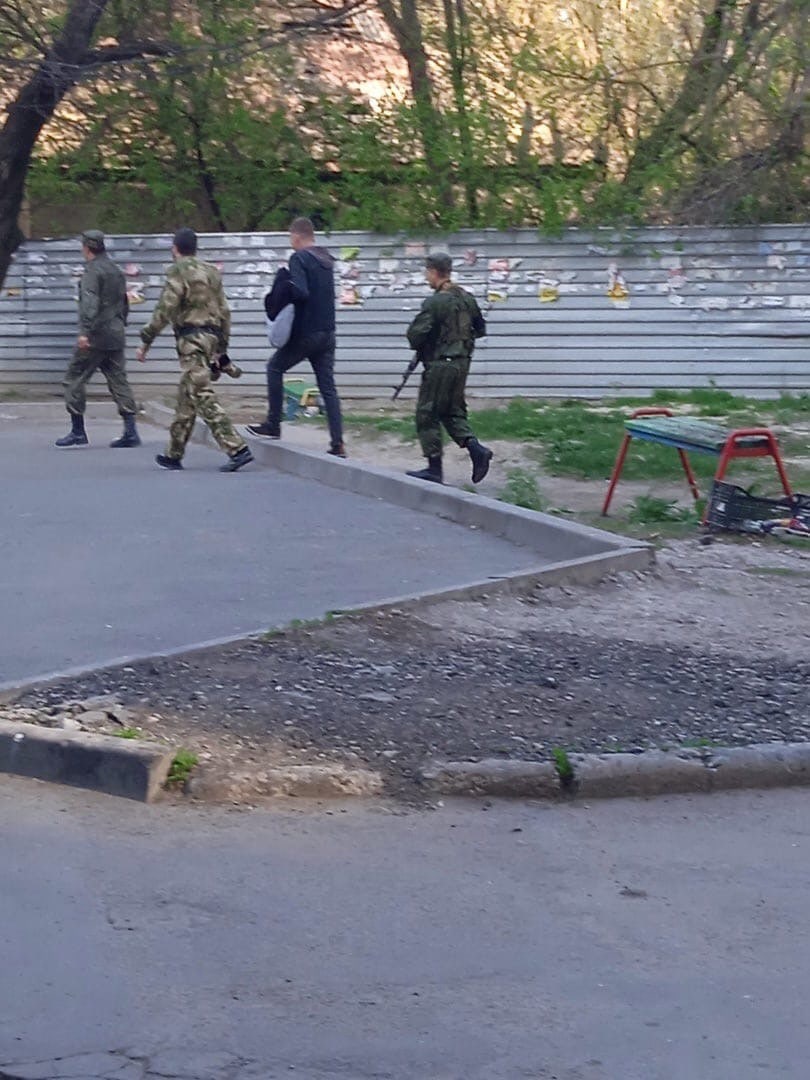1. Well, Russia already did mass mobilisation in Donbass. It is the Ukrainian citizens that are the main Russian cannon fodder. I have no idea why this is not discussed more often
2. Mass mobilisation in Russia would be a stupid decision
3. That doesn't mean Kremlin won't do it
2. Mass mobilisation in Russia would be a stupid decision
3. That doesn't mean Kremlin won't do it
https://twitter.com/0xnota/status/1556975064955887617
That's the context for the @amnesty argument about civilians being put on the harm's way by the Ukrainian defence. Once a Donbass city fells to Russia, males 18-60 will be press-ganged to the army and then recycled in the frontal attacks on the Ukrainian positions. That's reality
Scenario under which civilians won't suffer just does not exist. From the Russian perspective population of the conquered territory is just the cheap cannon fodder which they send to frontal attacks with WWII weapon. Entire male population of Donbass is being recycled by Russia
Recruiters would literally hunt for males on Donetsk and Luhansk streets. Many were living on their work to avoid coming out to the street for months. Anyone who stepped outside would be caught, press-ganged and sent to die
The news from April. A famous Donetsk pianist was KIA when fighting for Mariupol (on Russian side). How did he get into the army though? 

Social media give some context:
"Philharmonie was cheated! they were told to come to record a video... but instead they were all taken in the unknown direction!!"
"We were told the same, they cheated us too. Opera, circus. Donbass"
"He was not a volunteer! Like all musicians!"
"Philharmonie was cheated! they were told to come to record a video... but instead they were all taken in the unknown direction!!"
"We were told the same, they cheated us too. Opera, circus. Donbass"
"He was not a volunteer! Like all musicians!"

You can watch an early video of this war with the Donbass civilians forcibly mobilised for the Russian colonial troops. They are called "1st and 2nd Donbass Army Corps" but are fully controlled by Russia. Cannon fodder are Ukrainian, but 100% of generals and seniors are Russian
Here you see the forcibly mobilised Donbass civilians who were forced to fight for Mariupol and now declare they don't want to fight any further. A few declarations like this came out this summer
Another declaration of forcibly mobilised Donbass civilians who do not want to fight anymore. That's literally the press-ganged cannon fodder, the colonial troops
Strelkov on how Russia recruited its cannon fodder in Donbass. It launched a total mobilisation in Donetsk and Luhansk. Students, professors, STEM and humanities. [What he doesn’t mention is workers, but that's very common, too] Everyone can be pressganged including those over 50
Forced total mobilisation of the Donbass males who are then sent to fight for Russia as the most expendable cannon fodder Putin has is *the* major war crime of this Russia's invasion. Russia is forcing Ukrainian civilians to fight for it
Meanwhile, @amnesty
Meanwhile, @amnesty

Total mobilisation of the Donbass people into the Russian colonial troops is *the* major war crimes of the last months. The fact that it is not in the centre of the public discussion makes me to question integrity of the entire media & NGO bureaucracy that chooses to ignore it 

Every time the Ukrainian army retreats, civilians are being put on the harm's way. Russian proxies from the DPR and LPR will hunt for the males on streets, catch everyone they can find, pressgang them and recycle in the frontal attacks. They're 100% disposable 

Almost complete silence of media and NGO on the total mobilisation in Donbass is shoking. It must be in the centre of discussion, not some fringe issue few heard about. Obscurity of this crime makes me question both competence & integrity of those who choose to ignore it. The end
• • •
Missing some Tweet in this thread? You can try to
force a refresh





